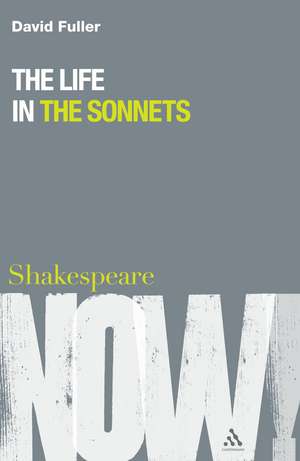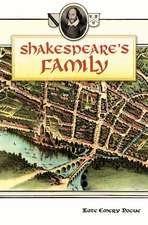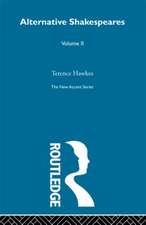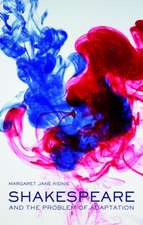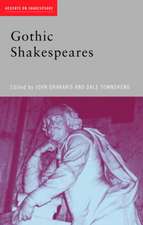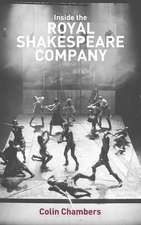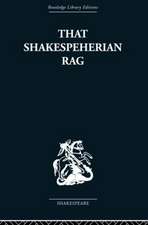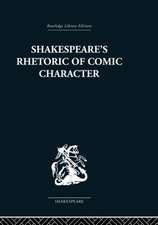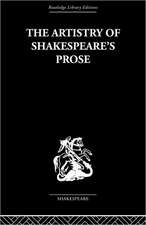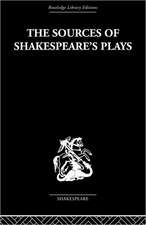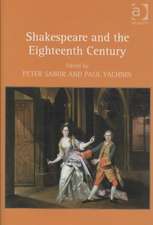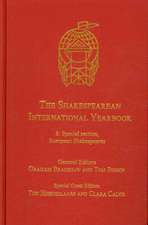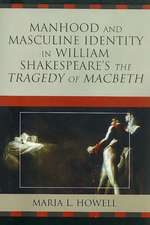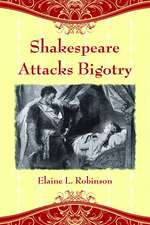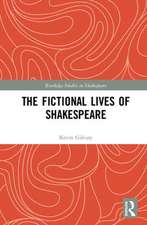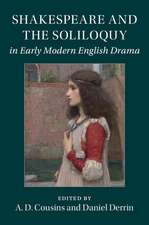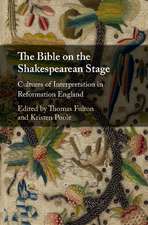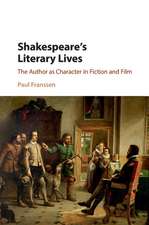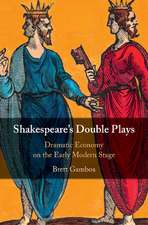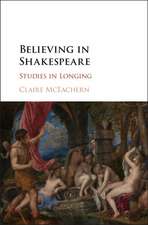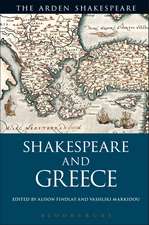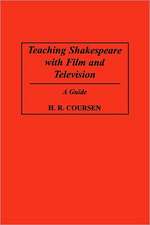The Life in the Sonnets: Shakespeare Now!
Autor Professor David Fulleren Limba Engleză Paperback – 16 feb 2011
| Toate formatele și edițiile | Preț | Express |
|---|---|---|
| Paperback (1) | 162.82 lei 3-5 săpt. | |
| Bloomsbury Publishing – 16 feb 2011 | 162.82 lei 3-5 săpt. | |
| Hardback (1) | 594.77 lei 6-8 săpt. | |
| Bloomsbury Publishing – 16 feb 2011 | 594.77 lei 6-8 săpt. |
Din seria Shakespeare Now!
- 9%
 Preț: 150.05 lei
Preț: 150.05 lei - 9%
 Preț: 149.61 lei
Preț: 149.61 lei - 15%
 Preț: 162.36 lei
Preț: 162.36 lei - 15%
 Preț: 162.51 lei
Preț: 162.51 lei - 10%
 Preț: 124.55 lei
Preț: 124.55 lei - 14%
 Preț: 149.70 lei
Preț: 149.70 lei - 15%
 Preț: 162.45 lei
Preț: 162.45 lei - 14%
 Preț: 162.71 lei
Preț: 162.71 lei - 9%
 Preț: 149.35 lei
Preț: 149.35 lei - 15%
 Preț: 162.10 lei
Preț: 162.10 lei - 25%
 Preț: 162.79 lei
Preț: 162.79 lei -
 Preț: 165.48 lei
Preț: 165.48 lei - 15%
 Preț: 162.36 lei
Preț: 162.36 lei - 25%
 Preț: 163.24 lei
Preț: 163.24 lei - 9%
 Preț: 149.54 lei
Preț: 149.54 lei -
 Preț: 128.05 lei
Preț: 128.05 lei
Preț: 162.82 lei
Preț vechi: 171.57 lei
-5% Nou
Puncte Express: 244
Preț estimativ în valută:
31.16€ • 32.60$ • 25.88£
31.16€ • 32.60$ • 25.88£
Carte disponibilă
Livrare economică 12-26 martie
Preluare comenzi: 021 569.72.76
Specificații
ISBN-13: 9781847064547
ISBN-10: 184706454X
Pagini: 134
Dimensiuni: 129 x 198 x 10 mm
Greutate: 0.18 kg
Editura: Bloomsbury Publishing
Colecția Continuum
Seria Shakespeare Now!
Locul publicării:London, United Kingdom
ISBN-10: 184706454X
Pagini: 134
Dimensiuni: 129 x 198 x 10 mm
Greutate: 0.18 kg
Editura: Bloomsbury Publishing
Colecția Continuum
Seria Shakespeare Now!
Locul publicării:London, United Kingdom
Caracteristici
Calls for a more emotionally and aesthetically aware literary criticism, as opposed to quasi-scientific professionalism.
Notă biografică
David Fuller is Emeritus Professor of English in the University of Durham, UK. From 2002 to 2007 he was the University's Orator. He trained as a musicologist, and has written on a range of literary topics from Medieval to Modern. He is the author of Blake's Heroic Argument (1988), James Joyce's 'Ulysses' (1992), Signs of Grace (with David Brown, 1995). He has edited Tamburlaine the Great (1998) for the Clarendon Press complete works of Marlowe, co-edited (with Patricia Waugh) The Arts and Sciences of Criticism (OUP, 1999), and edited Blake: Selected Poetry and Prose (Longman, 2000, 2008).
Cuprins
1. Prologue: A Discipline without Boundaries / 2. Imagining Feelings / 3. Dwelling in the Words: Reading Aloud / References / Index
Recenzii
The ambitious project of the Shakespeare NOW series is to bridge the gap between 'scholarly thinking and a public audience' and 'public audience and scholarly thinking'. Scholars are encouraged to write in a way accessible to a general readership and readers to rise to the challenge and not be afraid of new ideas and the adventure they offer. There are other bridges the series is ambitious to cross: 'formal, political or theoretical boundaries' - history and philosophy, theory, and performance.
Reading [Shakespeare's sonnets] aloud is demonstrated to be a focused mode of criticism. ... Fuller shows the specific vocal and emotional intricacies, flexibility, intelligence, and delicacy required for an ideal rendering. The essay should become required reading for classical actors in training and voice coaches
[An] exciting and unusual book . . . bold and controversial . . . a provocation, intended to dislodge us from normative expectations about critical reading, and to change . . . the way we feel towards literature, each other, and the profession of literary studies. ... [A] thrilling little book
This is a passionate book: a book about passion in literature, passion for literature, and passion in critical writing. David Fuller reminds us of the emotional and sensual pleasures of poetry and reintroduces terms such as "enjoyment", "engagement" and "feeling" to our critical vocabularies. This book will deepen the reader's engagement not just with Shakespeare's sonnets but with all kinds of art - written, acoustic and visual - as Fuller shows us how to bring personal experience to bear on critical analysis.
Featured in the Times Higher Education Literature Textbook round-up.
This slim and easy-to-read volume.concludes with a brief coda that pulls things together quite nicely.
The Life in the Sonnets . . . looks at the sonnets in a different fashion to that currently employed by the majority of critics . . . Fuller talks at length about their rhyme and metre, producing evidence to support his initial claim that these are poems that have been written to be read aloud. To add weight to his argument, Fuller talks of vocal techniques employed by both actors and opera singers.
Reading [Shakespeare's sonnets] aloud is demonstrated to be a focused mode of criticism. ... Fuller shows the specific vocal and emotional intricacies, flexibility, intelligence, and delicacy required for an ideal rendering. The essay should become required reading for classical actors in training and voice coaches
[An] exciting and unusual book . . . bold and controversial . . . a provocation, intended to dislodge us from normative expectations about critical reading, and to change . . . the way we feel towards literature, each other, and the profession of literary studies. ... [A] thrilling little book
This is a passionate book: a book about passion in literature, passion for literature, and passion in critical writing. David Fuller reminds us of the emotional and sensual pleasures of poetry and reintroduces terms such as "enjoyment", "engagement" and "feeling" to our critical vocabularies. This book will deepen the reader's engagement not just with Shakespeare's sonnets but with all kinds of art - written, acoustic and visual - as Fuller shows us how to bring personal experience to bear on critical analysis.
Featured in the Times Higher Education Literature Textbook round-up.
This slim and easy-to-read volume.concludes with a brief coda that pulls things together quite nicely.
The Life in the Sonnets . . . looks at the sonnets in a different fashion to that currently employed by the majority of critics . . . Fuller talks at length about their rhyme and metre, producing evidence to support his initial claim that these are poems that have been written to be read aloud. To add weight to his argument, Fuller talks of vocal techniques employed by both actors and opera singers.
